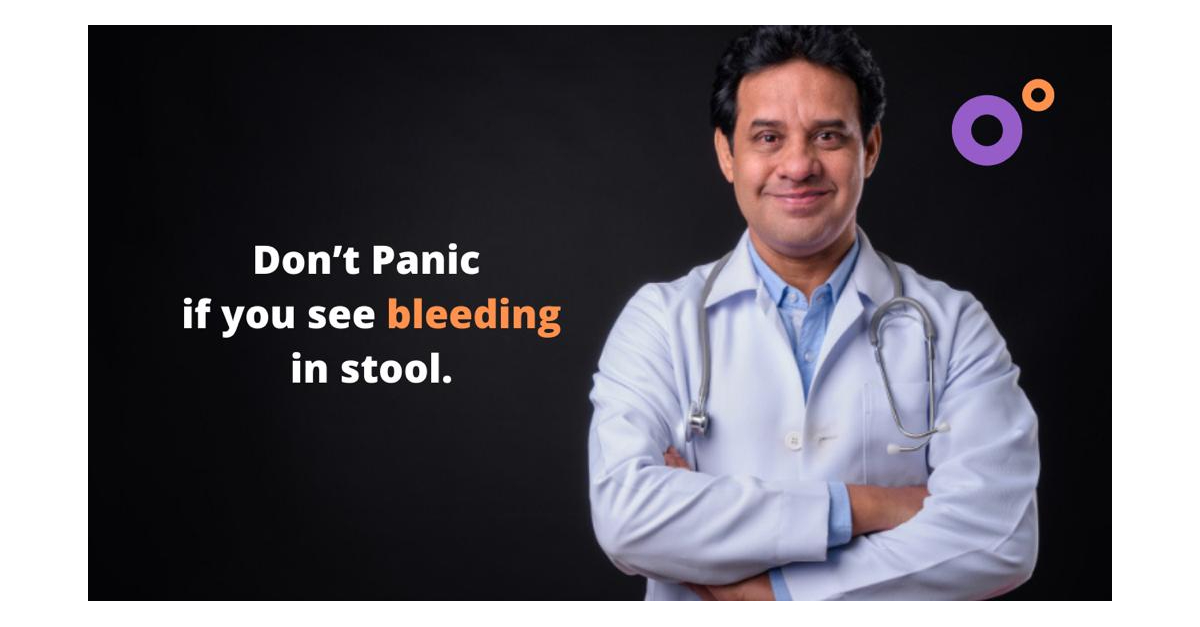Bleeding in the Stool: Why You Shouldn’t Panic

Introduction
Medically reviewed by
Dr. Shuddhatam Jain
It is scary to see blood in your stool, as the first thought comes to mind is that it may be cancer. While frightening, blood in stool is quite common and you will be relieved to know can be caused by a number of reasons which are not life threatening. This minor rectal bleeding often gets resolved naturally or with minimal treatment.
Even so, the bleeding should not be ignored because it can be a symptom of something serious and worthy of attention. After a bowel movement if you see blood, the first step is to assess the cause and severity, by visiting your doctor to ascertainthe reason for the bleeding in your stool.Here are the most common causes:-
Hemorrhoids(Piles) -
Aare swollen, irritated blood veins in the rectum or around the anus. Also called piles, hemorrhoids may bleed when damaged. These are formed from undue pressure on the anus due to constipation, straining, excessive sitting on the toilet seat, pregnancy, low-fiber diet, obesity or other strain. Resulting to a painful and itchy anus, this can also be accompanied by blood while passing stools Treatment varies upon the severity of the hemorrhoids with options including over-the-counter creams and suppositories, stool softeners, warm baths and hemorrhoidectomies.Anal fissure -
An anal fissure are small tears or splits in the lining of the anal lining. Typically caused by constipation and passing hard, dry or large stools which cause pain, bleeding,and a burning sensation during bowel movements.Diverticula -
a condition characterized by small, bulging sacs or pouches called diverticula which form in the intestinal wall or colon. The small blood vessels inside these pouches may bleed, causing bloody stools.Inflammatory Bowel Disease -
The two most common types of inflammatory bowel disease - Ulcerative colitis and Crohn’s disease happen because of chronic inflammation of the digestive tract.Polyps -
Polyps are small non-cancerous cellular growths on the colon lining or rectum. They are usually benign in nature, and bleed – causing blood in the stool. Others polyps may be precancerous and warrant removal. Regular colon screening at FirstCure Health will alert your doctor to any changes in polyps.Proctitis -
Inflamed rectal tissues, sometimes caused by previous radiation therapy, infections or inflammatory bowel disease.Abscesses -
anal glands; blood vessels may rupture and cause bleeding in the stool.Ulcers -
Inflamed sores in the stomach, intestinal lining or rectum. If you see black blood in your stool immediately call the doctor because when sores bleed, digestive juices break down the blood cells and turning them black.Most bleedings in the stool are caused by the conditions mentioned above, and they usually go away on their own over time.
Colon or rectal (colorectal) cancer -
Rectal bleeding is one symptom of colon cancer. If you see any unexplained blood in your stool or any sudden, persistent changes in bowel function please visit your doctor for a check up to rule out colon cancer.The doctor We will conduct a thorough history and physical exam, as well as lab tests. They may also use a short, lighted instrument called an anoscope to look closely at the anal canal and lower rectum. Or if needed he may suggest a sigmoidoscopy—performed with a short, flexible, camera-equipped tube—to examine the entire colon, or a full colonoscopy, typically performed after you’re sedated.
The doctor may even discuss colon cancer with you, as rectal bleeding can be a symptom. The good news is that colon cancer is curable when caught early.
Why talk to Us?
We at FirstCure have top doctors equipped with most advanced procedures at guranteed lowest cost. We will assist you at every step from booking consultations, second opinions, arranging diagnostic tests, insurance approvals and related paperwork, admission to discharge and post surgery follow up consultation.